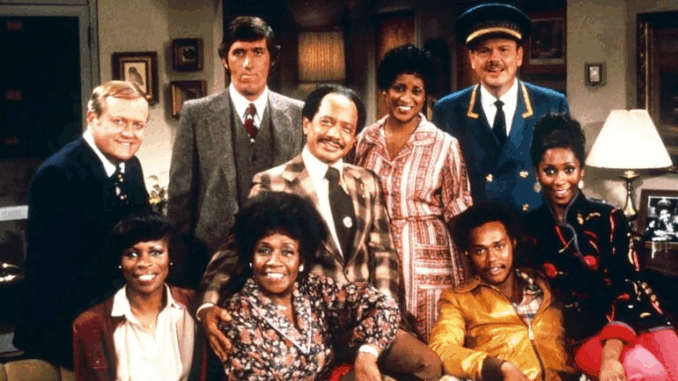
When The Jeffersons premiered in 1975, it was supposed to be a spinoff novelty—a flashy side dish to All in the Family. What it became was a cultural juggernaut. For the first time in network history, a Black couple led a sitcom not centered on poverty, crime, or struggle—but on ambition, success, and power.
But make no mistake—The Jeffersons didn’t get there with network support. It climbed every inch of that 21-floor apartment building by force.
Sherman Hemsley wasn’t CBS’s first choice for George. Producers feared he was “too intense.” Isabel Sanford had to fight for equal billing. And the writers’ room, for much of the early seasons, had no Black voices. The actors themselves often rewrote dialogue, adding cultural realism and rejecting punchlines they felt “made us look like fools.”
“We weren’t here to dance,” Sanford once said. “We were here to be seen. Fully.”

In fact, it was the show’s depiction of wealth that ruffled the most feathers. A successful Black entrepreneur? A Black woman who hired a maid? Critics accused the show of “selling out.” But for many Black viewers, The Jeffersons was the first time they saw someone like their uncle or mother onscreen—owning things. Controlling the room.
“People think it was fantasy,” Hemsley said in an old interview. “But I grew up with men like George. Loud, flawed, proud. This wasn’t fiction. This was my block.”
The show lasted 11 seasons, outliving many of its contemporaries. It never won an Emmy, despite being one of the highest-rated sitcoms of its time. But its influence runs deep.
Shows like Black-ish, Fresh Prince, and Atlanta owe it a debt. Not just for opening the door—but for busting it down without waiting for permission